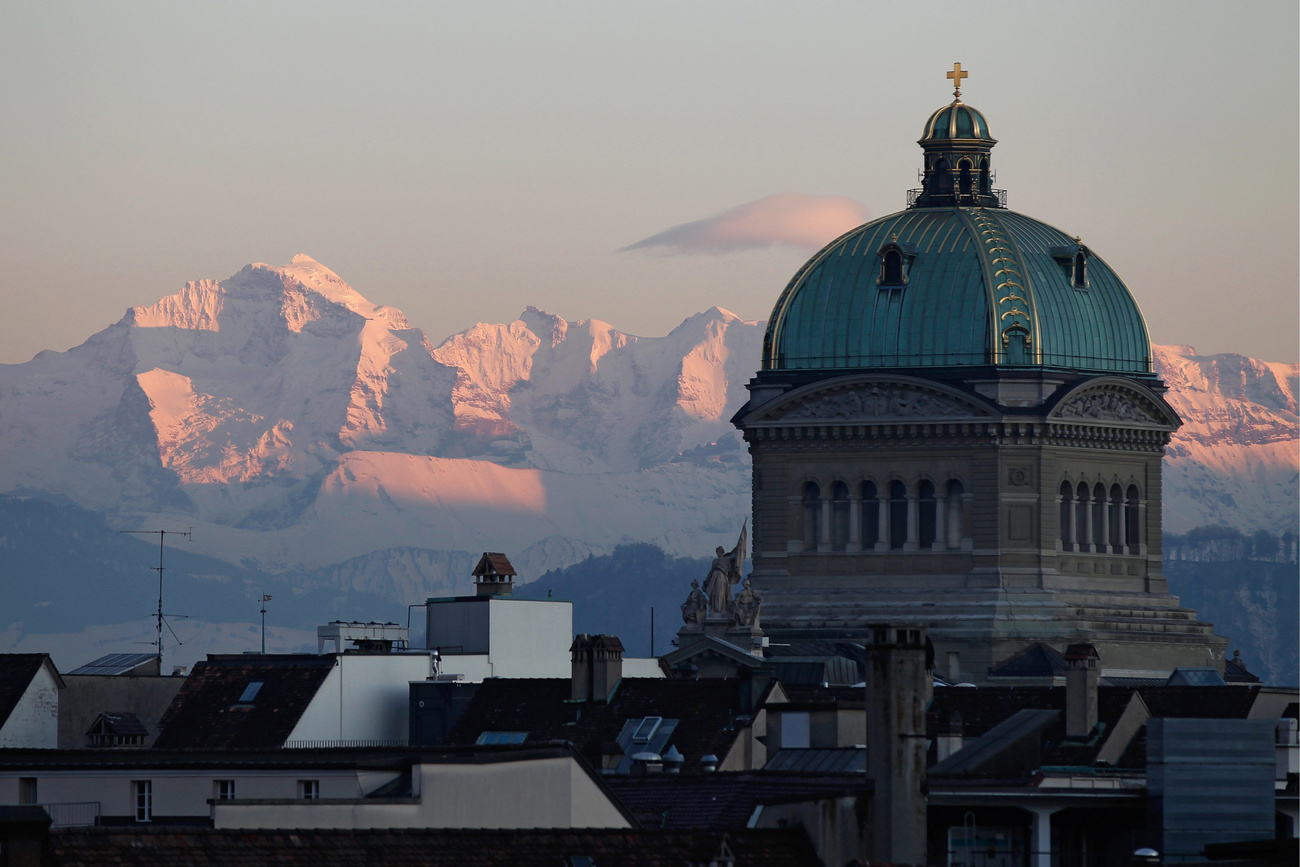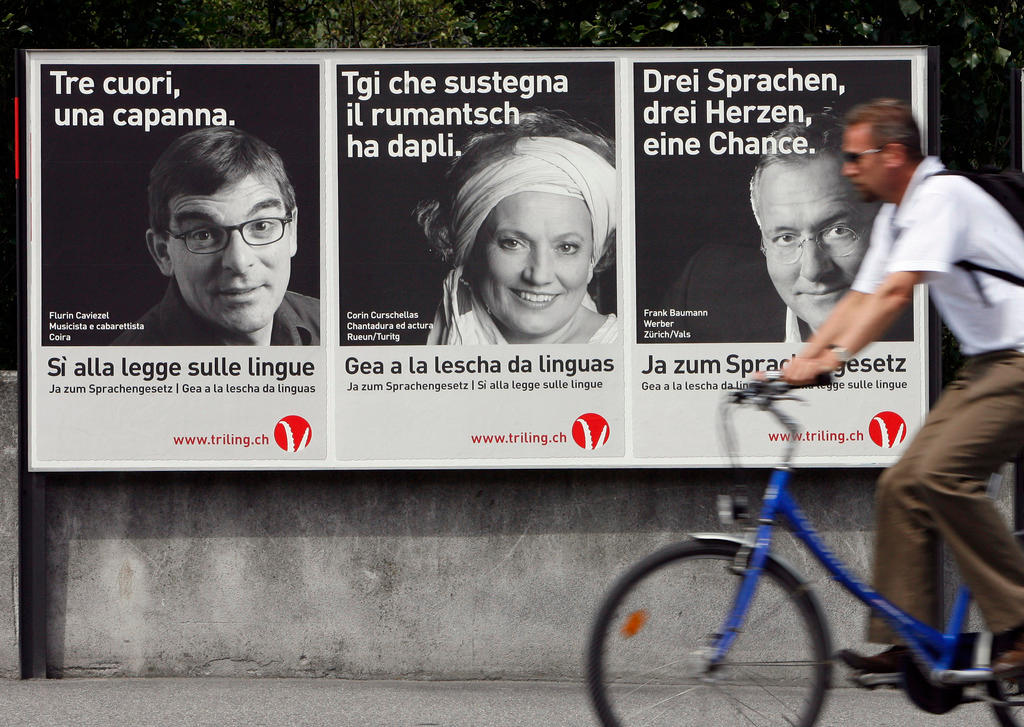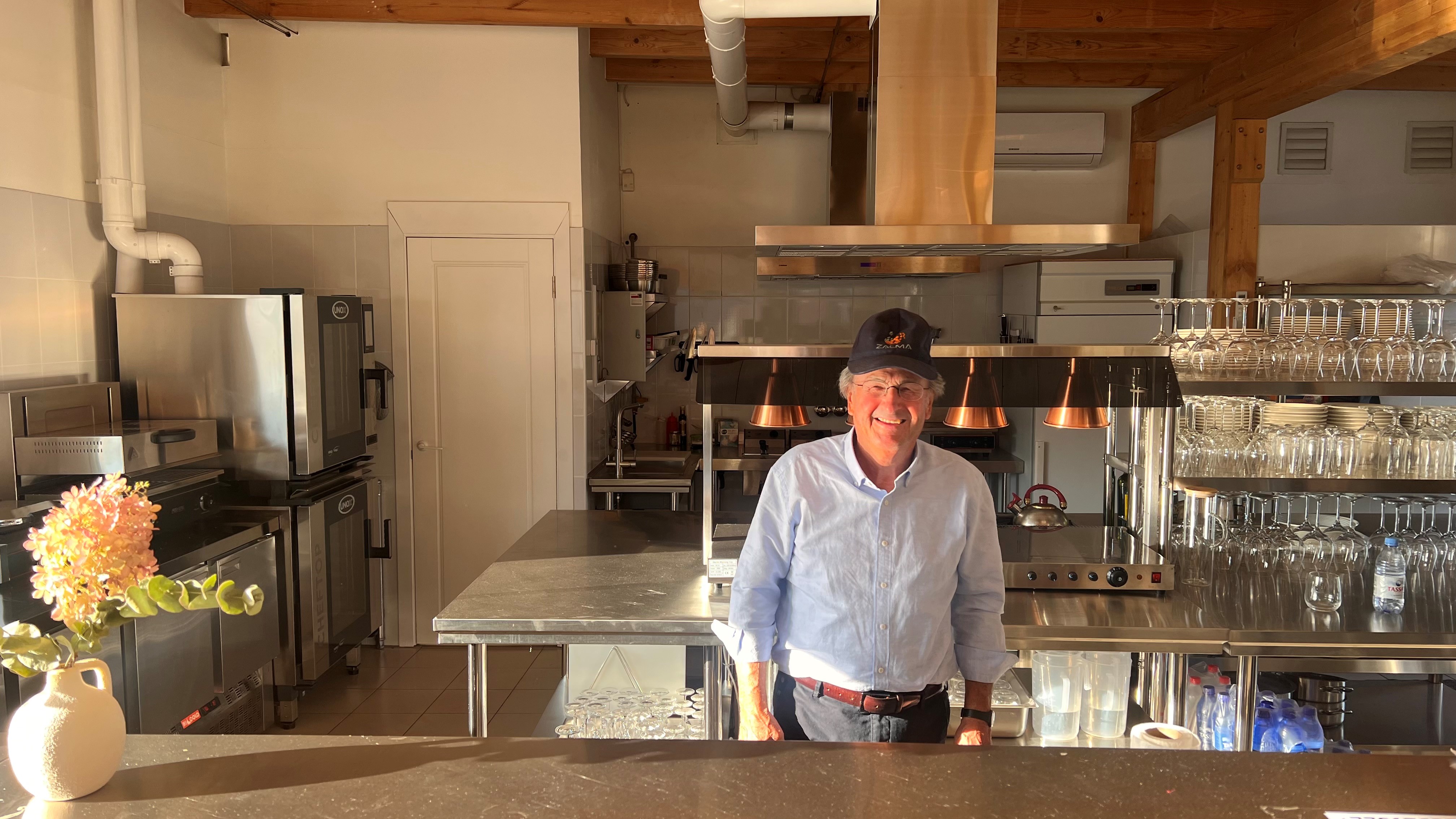
Swiss economist grapples with US-Canadian trade relationship

Economy and democracy are two sides of the same coin. This is what Bernese economist Daniela Hauser has discovered while working in Ottawa, where she is trying to work out the consequences of the latest proposals from incoming US President Donald Trump.
“This feels a bit like Europe,” Daniela Hauser tells SWI swissinfo.ch during an interview in the lively ByWard Market district at the heart of the Canadian capital. And just like in her hometown of Bern, the 43-year-old economist likes to travel on foot wherever possible. “I love hiking, whether in cities, out in the wilderness or in the Bernese Oberland.”
Hauser caught the Wanderlust bug shortly after completing her high-school diploma. Her fascination with the big economic questions was sparked during her years at the Neufeld Gymnasium in Bern and later deepened when she studied economics at the University of Lausanne.
After a short stint in Geneva, Hauser earned her doctorate in Barcelona where she also met her future husband, an economist from Italy. “I’m interested in the big picture of monetary economics and the significance of fiscal policy,” she explains. However, she has never lost sight of her enthusiasm and interest in local and humanitarian issues. During her studies, she spent several years working on child protection projects in Ecuador.
On tour with SWI swissinfo.ch’s global democracy correspondent
SWI swissinfo.ch’s global democracy correspondent, Bruno Kaufmann, is visiting Swiss citizens living abroad who, with their views and their active social or political work, represent a “bridge” between their old and new homes. These are countries and cities that might not be in the media spotlight but which face important decisions in terms of democracy and policy.
Throughout her career, Hauser has observed and reflected on how economics and democracy are two sides of the same coin, and how they influence each other. “For an economy to thrive, we need attractive and strong democratic conditions such as secure property rights and a reliable rule of law that enforces laws objectively,” she emphasises, citing Switzerland as a prime example of a dynamic democratic country that fosters a stable environment.
According to a reportExternal link in 2022 by the Varieties of Democracy Institute at the University of Gothenburg, strengthening a country’s democracy also contributes to a stronger economy. In contrast, autocracies struggle with negative growth rates more often than democracies.

Speed-dating for economists
After completing their studies in Barcelona, Hauser and her husband immediately started job hunting. They attended the annual conference of the American Economic Association (AEA) which takes place in a major US city at the beginning of each year. Apart from offering lectures and workshops, the conference provides a great opportunity for large employers such as central banks and major companies to meet ambitious job seekers who have just graduated from the world’s best universities of economics.
“We received several job offers and decided to go for the Canadian adventure,” Hauser says. Her life, she admits, is dominated by three things: curiosity, efficiency and determination. The job offer they both received from the Canadian central bank came with a significant advantage. “It allowed us both to combine our professional and private ambitions.”
Since participating in the AEA for the first time in 2013, the couple has become a regular part of the event, which Hauser describes as one of the “most important global job fairs for economists”. However, they are no longer seeking jobs but scouting for new talents.

While Hauser’s husband leads the research unit for national economic analysis at the Bank of Canada, she is in charge of the international team. “We evaluate various scenarios for future economic relations with the US.” This role puts the Swiss economist right at the centre of the North American relationship drama. Tensions intensified in late November when President-elect Donald Trump announced plans to raise tariffs on all imports from neighbouring countries such as Mexico and Canada by 25% on his first day in office.
Canada is ‘non-US’
Trump justified these punitive tariffs by citing “an invasion of drugs and illegal immigrants through the ridiculously open borders”. It is not yet clear what exactly Canada must do to prevent these tariffs, even though the Canadian Prime Minister Justin Trudeau met Trump at his residence in Florida shortly after the announcement to discuss this delicate issue. What caused quite a stir, however, was Trump’s idea of making Canada the 51st US state.
This proposal does not sit well in Canada. “Despite all the similarities with the US, we Canadians like to distance ourselves from our southern neighbour and define ourselves as ‘non-US’,” observes Hauser, who became Canadian in 2021 and who now holds both Swiss and Canadian citizenship. “For this I had to take an online test on Canadian geography and history, among other things.” Just like Switzerland, Canada is working around the clock to prepare for Trump’s second term in office.

More
How can Switzerland prepare for Trump 2.0?
Similar to Hauser’s hometown of Bern, Ottawa was chosen to become the capital of the new federal state in the mid-19th century after a long political row among various interest groups.

More
Why is Bern the capital city of Switzerland?
Today, over one million people live in Canada’s fourth-biggest city, where street signs are in both English and French, although the city is not officially bilingual. “Canada struggles more with multilingualism than Switzerland,” says Hauser, who speaks not only English, German and French but also Spanish and Italian. Her explanation for this lies in the country’s power distribution. “Canada’s political system is based on the British first-past-the-post electoral system, where the winner of an election gains all the power.”

More
Multilingualism: speaking with one voice
After nearly a decade under Liberal Party leader Justin Trudeau, a shift in power toward the Conservative Party led by opposition leader Pierre Poilievre is expected in the 2025 elections. “It reminds me of when we arrived in Canada ten years ago and long-standing Conservative Party Prime Minister Stephen Harper was voted out. People were ready for a change,” Hauser says. Indeed, on January 6, Trudeau announced his resignation.
For Hauser, it is important to clear her head and gain new perspectives after long days spent in meetings and at the computer, where she is working on economic data and possible scenarios. “The magnificence of nature grounds me which feels wonderful in light of the big questions surrounding democracy, economics and world politics with which I deal.” Despite her Canadian passport, her role and her identity in Ottawa, she still firmly considers herself a Swiss economist.
Swiss network with global impact
Hauser is actively involved in the Network of Swiss Economists Abroad which was established in 2006 and has around 200 members from around the world. Financially supported by the Swiss National Bank, the members of the network meet annually in Switzerland. The next gathering will take place at the University of Lucerne in December.
“Many Swiss economists who work in various institutions and universities around the world are highly influential,” says Aline Bütikofer, who coordinates the network and works as a professor of labour market economics at the Norwegian School of Economics in Bergen.
According to Bütikofer, two key traits contribute to the success of Swiss economists worldwide: commitment and diligence. In Hauser’s case, three additional qualities come into play: curiosity, efficiency and determination.
Edited by Mark Livingston. Adapted from German by Billi Bierling/ts

More
Swiss entrepreneur Max Schneeberger pursues cultural mission in Almaty

In compliance with the JTI standards
More: SWI swissinfo.ch certified by the Journalism Trust Initiative





























You can find an overview of ongoing debates with our journalists here . Please join us!
If you want to start a conversation about a topic raised in this article or want to report factual errors, email us at english@swissinfo.ch.